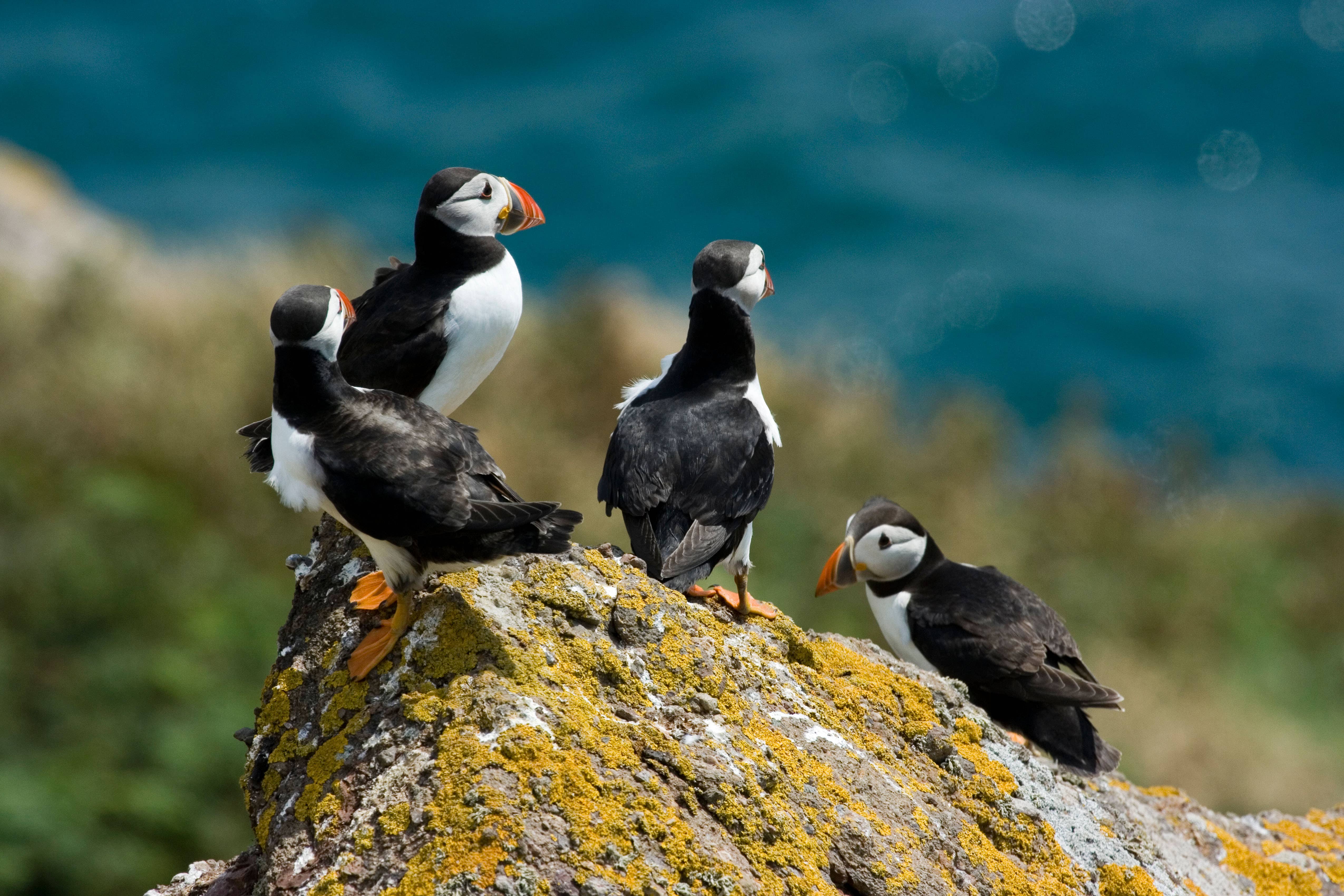Holidaymakers warned not to touch dead birds on Welsh beaches amid concern over bird flu outbreak
Bird flu is believed to be ripping through colonies on west and north coasts of Wales

Your support helps us to tell the story
From reproductive rights to climate change to Big Tech, The Independent is on the ground when the story is developing. Whether it's investigating the financials of Elon Musk's pro-Trump PAC or producing our latest documentary, 'The A Word', which shines a light on the American women fighting for reproductive rights, we know how important it is to parse out the facts from the messaging.
At such a critical moment in US history, we need reporters on the ground. Your donation allows us to keep sending journalists to speak to both sides of the story.
The Independent is trusted by Americans across the entire political spectrum. And unlike many other quality news outlets, we choose not to lock Americans out of our reporting and analysis with paywalls. We believe quality journalism should be available to everyone, paid for by those who can afford it.
Your support makes all the difference.Holidaymakers have been warned not to touch dead birds on Welsh beaches during the summer months as concern over a bird flu outbreak grows.
Reports of bird carcasses washing up on shores in west and north Wales have increased in recent weeks as the disease continues to affect wild bird colonies around the UK.
Wales’s climate change minister Julie James has said the situation is “heart-wrenching” and asked people to heed advice not to pick up dead or visibly sick birds, keep dogs from coming into contact with them, and to report sightings.
She visited islands off the Pembrokeshire coast alongside wildlife charity the RSPB to assess what could be done.
It is heart-wrenching to see our mesmerising wild birds fall victim to such a terrible illness
Ramsey and Grassholm, where the minister sailed to on Thursday, are home to some of the world’s most important gannet colonies, with guillemots, Manx shearwater, razorbills and peregrine falcons also nesting on their shores.
RSPB Cymru said birds suspected of having the illness are being spotted there daily.
Last week the charity said that common and Arctic terns, gulls and the Atlantic puffin had been found dead floating in waters around the Skerries and Rhosneigr islands, off Anglesey in North Wales.
The Welsh government has set up a Seabird Emergency Response Group which meets weekly.
Avian influenza is described as highly pathogenic and can spread through sneezes, faeces, standing in still water, and birds of prey or opportunistic scavengers hunting contaminated carcasses.
Seabirds tend to live in dense colonies and rear just one chick a year.
The impact of avian flu on seabird populations has been devastating
This allows the disease to rip through populations and move between colonies while making it harder for the species to bounce back.
Ms James said it was important people do not help spread the disease further.
“It is heart-wrenching to see our mesmerising wild birds fall victim to such a terrible illness,” she said.
“I’m asking everyone in Wales to consider their impact on the environment and to please also heed advice – do not pick up any sick or dead birds and keep dogs on leads to prevent contact.
“Instead report them immediately to Defra on the gov.uk website or by calling 03459 335577.”
The minister added: “We’re very concerned because nobody yet has any way of combating it, so we have to have a campaign globally to fight this.
“But one of the real points of hope is that there are clearly birds that have recovered.
“So the RSPB and scientists all over the world will be working to see whether they can isolate an immunity from the recovered birds.”
Arfon Williams, from RSPB Cymru, said: “The impact of avian flu on seabird populations has been devastating. It piles the pressure on fragile populations and is adding to the ever-increasing urgency of seabird conservation.
“Sadly, avian flu is not the only challenge facing seabirds in Wales.
“The impact of climate change and human activities at sea also necessitate urgent efforts to increase seabird resilience, be that through marine planning, biosecurity and fisheries management.”
In October, the Welsh Government implemented an avian influenza prevention zone which required poultry-keepers across Wales to comply with stringent biosecurity measures to prevent interaction and possible transmission of infection from wild birds.
The measures were lifted on July 4 but poultry-keepers are still encouraged to maintain strict biosecurity measures all year round.
Subscribe to Independent Premium to bookmark this article
Want to bookmark your favourite articles and stories to read or reference later? Start your Independent Premium subscription today.



